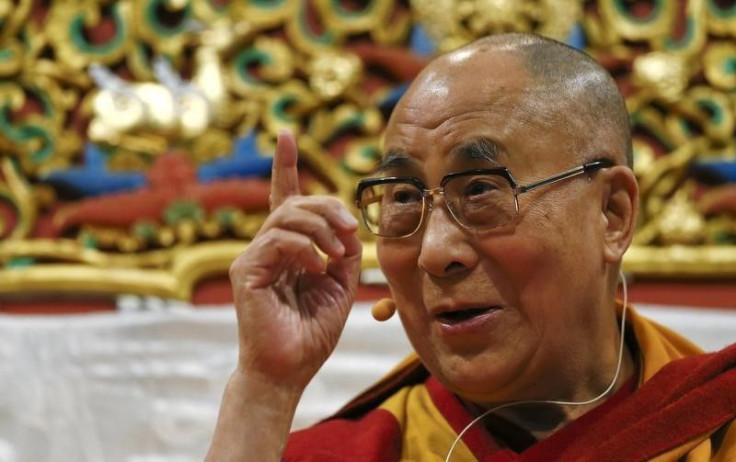Dalai Lama Praises India For Secularism Amid Fears Of Growing Religious Intolerance

The Dalai Lama promoted secular government Monday, saying it had produced good results in India, which he argued was far more stable than other countries as a result. The Tibetan spiritual leader’s comments come as India’s minority religious communities fear growing intolerance amid a rising tide of hardline Hindu nationalism.
“Conflicts over religion are taking place. ... We must bring everybody close and develop trust because serious matters cannot be solved through mistrust,” he said in a speech to a democracy conference in New Delhi, the Press Trust of India reported. “Barring a few exceptions, this country is most stable country in comparison to others. … The Constitution of India based on secularism has brought good results here.”
Secularism has been enshrined in India’s constitution since 1976, when the document’s preamble was amended to define the country as a secular republic. While India’s secular nature has long been glorified as a crucial aspect of the country’s pluralistic, democratic culture, the issue has recently become charged, with right-wing Hindu nationalists calling for a revision of the constitutional definition.
During the recent Republic Day celebrations in January, the hardline Shiv Sena party demanded the word be “permanently removed” from the constitution’s preamble because in their view, India is a “Hindu nation.” Many right wing Hindu groups have become emboldened since the landslide election victory that brought Prime Minister Narendra Modi and his Hindu nationalist Bharatiya Janata Party to power last year. Campaigns to promote the country’s Hindu heritage and to encourage its considerable Muslim and Christian minorities to “come home” to Hinduism have been gaining steam.
For his part, Modi has publicly distanced himself from the calls of his supporters, continuing to emphasize his commitment to India’s multireligious society. “This principle of equal respect and treatment for all faiths has been a part of India’s ethos for thousands of years. And that is how it became integral to the Constitution,” he said in a speech last month. “My government will ensure that there is complete freedom of faith and that everyone has the undeniable right to retain or adopt the religion of his or her choice without coercion or undue influence. My government will not allow any religious group to incite hatred against others, overtly or covertly. Mine will be a government that gives equal respect to all religions.”
While minority faith leaders have welcomed Modi’s sentiments, they’ve also urged his government to do more to combat the spread of religious intolerance, which they say has manifested itself in violence against their communities. The alleged gang rape of a Catholic nun in West Bengal is among the most recent high profile incidents to raise alarm against the country’s Christian community, which has complained of increasing attacks against churches. The Indian population is estimated to be about 80 percent Hindu and 13 percent Muslim, with Christians and people of other faiths accounting for less than 7 percent.
© Copyright IBTimes 2025. All rights reserved.






















